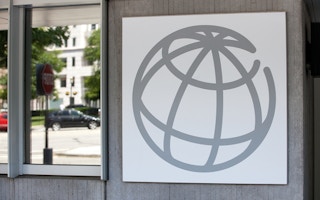The World Bank’s investments in sub-Saharan Africa came under attack on Monday by global charity Oxfam which said the vast majority of loans made by the bank’s private lending unit in the region went to companies using tax havens.
The charity said 84 per cent of the bank’s International Finance Corporation’s (IFC) investments in the region in 2015 went to companies whose use of tax havens had no apparent link to their core business and with a low level of transparency.
Responding to the report, IFC said Oxfam’s analysis was flawed and that in all cases it required its project companies to comply with applicable law, including tax law.
According to Oxfam’s report, the IFC invested more than $3.4 billion in sub-Saharan Africa in 2015 and three quarters of the 68 companies that it lent the money to were using tax havens.
“By allowing investments in tax havens the World Bank’s lending arm is ultimately depriving poor countries of much-needed revenues to fight poverty and inequality,” Nick Bryer, Oxfam’s head of inequality, said in a statement.
But the IFC said Oxfam was working on the wrong assumption that offshore jurisdictions were inevitably used to evade tax.
“The report implies that all offshore jurisdictions or offshore financial centers (OFCs) are tax havens simply by virtue of being offshore and that investment in multinational enterprises (MNEs) necessarily leads to tax evasion,” Frederick Jones, IFC spokesman, told the Thomson Reuters Foundation.
“There are legitimate uses for offshore structures. Appropriate use of OFCs can result in increased mobilization of private capital for investment that helps the poor,” he said in an emailed response.
According to Oxfam, the most popular tax haven for the IFC’s corporate clients was Mauritius, known for allowing companies to shift money offshore before returning it as foreign direct investment, which allows tax benefits.
The report was published after media revelations about the Panamanian law firm Mossack Fonseca that specialised in setting up offshore firms.
The leaked “Panama Papers” allegedly show that some companies domiciled in tax havens were being used for suspected money laundering, arms and drug deals, and tax avoidance.
Oxfam said although the IFC was a leader in the private sector when it came to disclosure, information about where more than half of its financing was ending up was not publicly available because of “opaque” financial intermediaries.
“The World Bank Group should not risk funding companies that are dodging taxes in Sub-Saharan Africa and across the globe. It needs to put safeguards in place to ensure that its clients can prove they are paying their fair share of tax,” Bryer said.
According to the United Nations, developing countries lose an estimated $100 billion a year in tax revenue because of corporate tax dodging.










